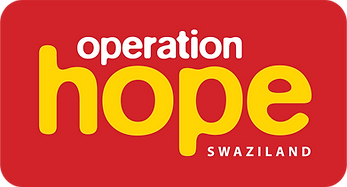
eSwatini


Why eSwatini?
eSwatini (formerly Swaziland) is a small, mountainous and landlocked country bordering South Africa and Mozambique, with an estimated population of around 1.1 million (UN 2021). Lack of essentials like clean water, food, safe housing, healthcare, education, and job opportunities, compounded by issues like HIV/AIDS and tuberculosis, leaves many sick, malnourished, and unable to work.

Our work in eSwatini
Our partnership with Operation Hope focuses on community development through Family Support, Community Empowerment and Education. The approach is multi-faceted, looking to address a range of issues that impact individuals, families and communities.
We seek, promote and encourage individual and small community participation and leadership in order to develop sustainable outcomes.

Where our partner works -
Lubombo Region
Operation Hope journey closely alongside individual families, as well as communities, to intimately understand the issues and needs, in a very personal and intentional approach. They have therefore chosen to focus their work on the Lubombo region, particularly in the Siteki and Matsanjeni constituencies (Tinkhundla).
The Statistics¹
69%
of Swazis are unable to meet basic food, education, transport and medical needs
45%
of people in the Lubombo region don’t have access to safe water, and 33% don’t have access to household sanitation
of Swazis are living in extreme poverty


26%
of children under the age of five suffer chronic malnutrition
1/3
of Swazi children are orphans
26%
of Swazis are HIV+, the highest prevalence in the world
80%
eSwatini has the highest incidence rate of tuberculosis in the world, and 80% of tuberculosis patients are co-infected with HIV
63/55 years
Life expectancy at birth is only 63 years old for men, and 55 years for women
50%
More than 50% of children under 17 are orphaned, with about 59% having lost their parents to HIV- and AIDS-related deaths
1
References
Food and Agricultural Organisation
International Fund for Agricultural Development (IFAD)
Masuku, M, B, 2006, ‘The Impact of HIV and AIDs on Agriculture and Food Security in Swaziland, FANRPAN Working Document
Swaziland Vulnerable Assessment Committee (SVAC), 2011, ‘Swaziland Annual Vulnerability Assessment & Analysis Report’

Our Partner in eSwatini - Operation Hope Swaziland
Operation Hope Swaziland (OHS) have been working in eSwatini for over a decade, in the areas of relief and community development in the Lubombo region. They engage with individuals and families through referrals from their own trained volunteer community development workers, government social welfare, community leaders, and the home-based care team from the local hospital.
OHS have a long track record of work in their communities and have developed strong relationships with government offices and other local organisations and services. OHS is a registered not-for-profit organisation in eSwatini.




Our Partner in eSwatini - Operation Hope Swaziland
Operation Hope Swaziland (OHS) have been working in eSwatini for over a decade, in the areas of relief and community development in the Lubombo region. They engage with individuals and families through referrals from their own trained volunteer community development workers, government social welfare, community leaders, and the home-based care team from the local hospital.
OHS have a long track record of work in their communities and have developed strong relationships with government offices and other local organisations and services. OHS is a registered not-for-profit organisation in eSwatini.

Areas in which we work in eSwatini
Education
Family Support
Community Empowerment

